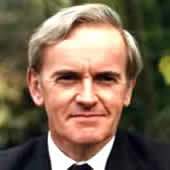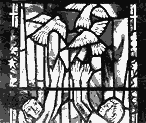Cullen inquiry: Prosecutors will not be asked to justify decisions on cases involving Hamilton
He substantially upheld the view of Scotland's senior law officer, the Lord Advocate, Lord Mackay of Drumadoon LINK, that while the fiscals could appear before the inquiry, they could not be questioned on the correctness of their decisions. [Ed ~ Why not? Was there an underlying fear that the wraps might be taken off the extensive tie-in with Hamilton, Masons and paedophiles, and expose the "citizens-above-suspicion"? LINK]
But he allowed leeway for submissions to be made on the decisions taken by the fiscals, including opinion on the correctness of those decisions. LINK
Colin Campbell QC, for the families of the 16 children who died at Dunblane Primary, earlier argued against limited questioning, saying that the Lord Advocate had no "absolute veto" preventing scrutiny of decisions by public prosecutors.
Mr Campbell argued that it was difficult to understand the purpose of providing a full explanation of what happened - a reference to an 18-page report on the fiscals' dealings with Hamilton prepared by an independent procurator fiscal - and then to deny the inquiry and Parliament the opportunity to consider the merits of what had been done.
Lord Cullen LINK said he was satisfied on the one hand it would "not be proper" for the inquiry to require the prosecutors to justify their decisions or to entertain submissions as to the sufficiency of what was put forward in justification of these decisions.
But he added that he saw no good reason why the inquiry should not entertain submissions based on the available evidence, saying: "I am not going to draw any hard and fast line to what can or cannot be submitted. It would certainly include the possibility of submissions as to whether a relevant charge could have been granted or whether in some circumstances some other decision could have been taken."
Lord Cullen said he did not want to inhibit decisions but it had to be clearly understood that they were based on available evidence "and do not enter into a review, in one form or another, of the decisions reached".
He added: "I am content this inquiry should not require the soundness of the decisions subjected to detailed examination of submissions, but I do wish to hear submissions based on the available evidence." [Ed ~ He's just waffling. A contradiction in terms if ever there was one.]
Earlier, Mr Campbell noted there was potential conflict between the public prosecutor's independent, impartial role and the accountability of the law officer to Parliament.
He said: "However, it is one thing to leave it to the Lord Advocate or the fiscal to decide whether or not a prosecution should take place but another matter altogether whether, in appropriate circumstances, and in the public interest, it is appropriate to examine decisions already taken." It did not follow, he said, that the Lord Advocate had an absolute veto on all scrutiny on all acts and ommissions of public prosecutors in Scotland.
The tribunal's purpose, he said, was not to influence decisions but to assist Parliament in considering the full circumstances of what happened and "more important than that, to assist Parliament in learning any necessary lessons and making necessary reforms in the public interest".
The Crown Counsel, Iain Bonomy, on behalf of the Lord Advocate, said either the principle existed or it did not. The result of infringing the principle would be that every decision made would be made under the threat of being called to account later. [Ed ~ What could possibly be wrong with that?]
"It would be wrong for the inquiry to review the decisions made in the sense of reviewing the exercise of discretion undertaken by the fiscal, or for the inquiry to endeavour to do the job of the fiscal and decide what course of action would be appropriate," he said.


Credit to Tom Minogue for unearthing the Spec roll of dishonour and also its founding members.






